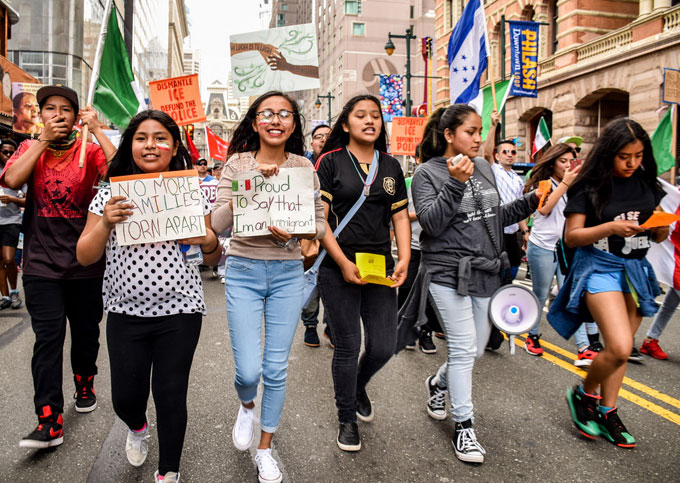The recent visit my wife Elizabeth I made to Salinas, California included a stop at John Steinbeck’s boyhood home. It brought back a flood of memories, and it made me think about self-identity. That felt right in the moment because America’s sense of itself was a major concern of Steinbeck’s writing.
America’s sense of itself was a major concern of John Steinbeck’s writing.
When I was a boy I devoured Steinbeck’s books. By age 16 I knew I wanted to be a writer, and I spent hours copying passages from Steinbeck to get the hang of his style. Years later my brother John and I produced travel films and documentaries, and one of the films we made, California: A Tribute, featured a segment on John Steinbeck and the trips to California’s Central Valley that led him to write The Grapes of Wrath. Seeing the Steinbeck House reminded me of the outrage Steinbeck felt about the thousands of dispossessed families from the American Dust Bowl who had made the long trek to California in search of agricultural jobs and a better life, only to find themselves destitute, hungry, and homeless, ready to accept work at any pay so that they could survive and feed their children.
By age 16 I knew I wanted to be a writer, and I spent hours copying passages from Steinbeck to get the hang of his style.
On a broader scale, the visit to the Steinbeck House made me think about the course of our nation’s history, about the millions of dispossessed foreigners who came to our shores and borders, fleeing persecution and homelessness and poverty, in search of a better life for themselves and their families, just like John Steinbeck’s American refugees. Today we seem to be returning to the posture of the authorities in The Grapes of Wrath—denying rights, making arrests, and deporting men, women, and children, sometimes entire families who have already established themselves in our country. Once upon a time we opened our doors to immigrants. Now we’re closing them.
Today we seem to be returning to the posture of the authorities in “The Grapes of Wrath”—denying rights, making arrests, and deporting men, women, and children.
Certainly rules need to be established and followed with respect to immigration. But what is happening now goes beyond rules or regulations. Too many of us are attempting to retreat into a narrow self-identity, building walls against the tide of diversity that has been our distinguishing characteristic as a culture. Who are we as a nation and a people? The comfortable categories of the past are being challenged and shattered in other countries, too, and we feel the same threat to our self-identity that they do. Like John Steinbeck, however, I am optimistic that a new inclusiveness will emerge in the end—the sense of connection and commonality that Steinbeck’s characters achieve in the closing pages of The Grapes of Wrath. The world of the truly human family.


